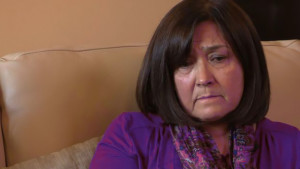 The National Council on Aging estimates 5 million elders are abused each year both in long-term care facilities and by family members. Abuse can take many different forms, such as financial, emotional, or physical, and is sometimes difficult to detect.
The National Council on Aging estimates 5 million elders are abused each year both in long-term care facilities and by family members. Abuse can take many different forms, such as financial, emotional, or physical, and is sometimes difficult to detect.
Let’s explore where this abuse occurs, how to detect signs of abuse, and how to get justice for a family member that has been subjected to harm.
Where Can Abuse Take Place?
Unfortunately, elder abuse is all too common. There are two major areas where abuse can take place, within the family or at a professional care facility. Let’s discuss these two avenues and how they can be dangerous to elders.
Within The Family
Did you know that in over 60% of elder abuse and neglect incidents, the person to blame is a family member? Most often, the perpetrator is someone close to the victim, such as an adult child or a spouse. Social isolation and lack of control over money and routine can lead to a family member taking advantage of an elder in your family.
Within A Nursing Home
If you have put your elderly loved one in the care of a professional long-term care facility, it can be distressing to think that harm may befall them. Unfortunately, abuse and neglect can occur in nursing homes as well.
In 2020, 2 out of 3 nursing home staff members worldwide reported that they had inflicted abuse in the past year according to the World Health Organization. If you’re looking for professional care in a setting where you can supervise the caregivers, you may want to consider in-home senior care for your loved one.
How Can I Detect Signs Of Abuse?
When you hear the word “abuse,” you may assume it means physical violence. However, elder abuse can take many forms that are difficult to detect, such as emotional or financial mistreatment.
Detecting Financial Abuse
Financial exploitation can be the most difficult to detect, and one of the most widely reported forms of abuse. In the state of Illinois, financial exploitation is the most common factor alleged in abuse reports, coming in at a whopping 40% according to the APA 2019 report.
To detect financial abuse in a capable elderly loved one, look to see if he or she is opening their own mail, paying their own bills, and signing their own documents. Financial exploitation often occurs when the elderly person is not in control of their finances and thus isn’t aware of the abuse until it’s too late.
If your family member is capable, let them have some autonomy in their financials or encourage them to create a living will to prevent this abuse. Additionally, encourage the elderly in your life to never give out personal information over the phone, as they may fall prey to scammers.
Detecting Emotional Abuse
Emotional abuse is also difficult to detect as it can take many forms, such as threats of violence, belittling, or intimidation. If your loved one is exhibiting unusual signs of depression and anxiety, sleep deprivation, or withdrawing from activities, emotional abuse may be at play.
Detecting Physical Abuse + Neglect
Physical abuse and neglect are slightly easier to detect in the elderly. If your loved one seems to have poor hygiene, isn’t taking their proper medication, exhibiting unusual weight loss, or missing aids like glasses, these could be warning signs of physical abuse and neglect.
What Can I Do To Seek Justice?
The idea of your loved one suffering harm at the hands of a fellow family member or trusted care facility is devastating. The good news is that you can seek legal action in cases of elder abuse and neglect. According to the National Center on Elder Abuse, all 50 states have passed legislation protecting these crimes from going unpunished, and a personal injury attorney can help you fight for your elderly loved ones.
Conclusion
When you’re drowning in statistics exposing elder abuse and its prevalence worldwide, preventing further incidents in America can seem like an insurmountable feat. However, when you are able to detect the warning signs of abuse, team up with a nursing home abuse lawyer to receive legal education, and spread the word about how others can protect the loved ones in their lives You can prevent incidents of abuse while winning justice for your family.


